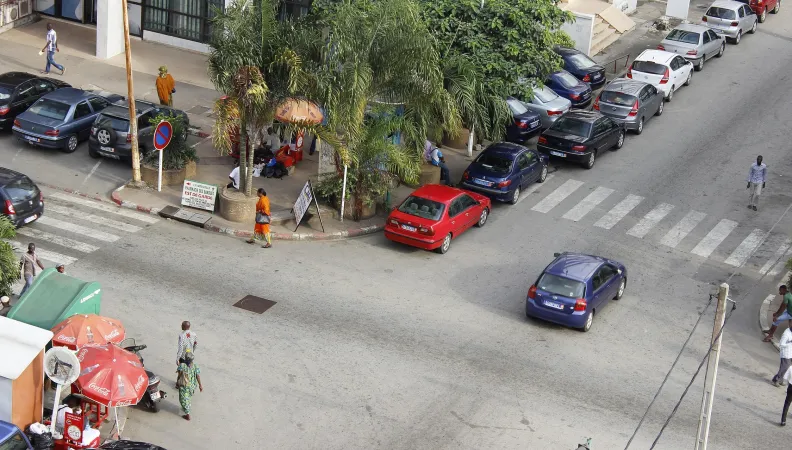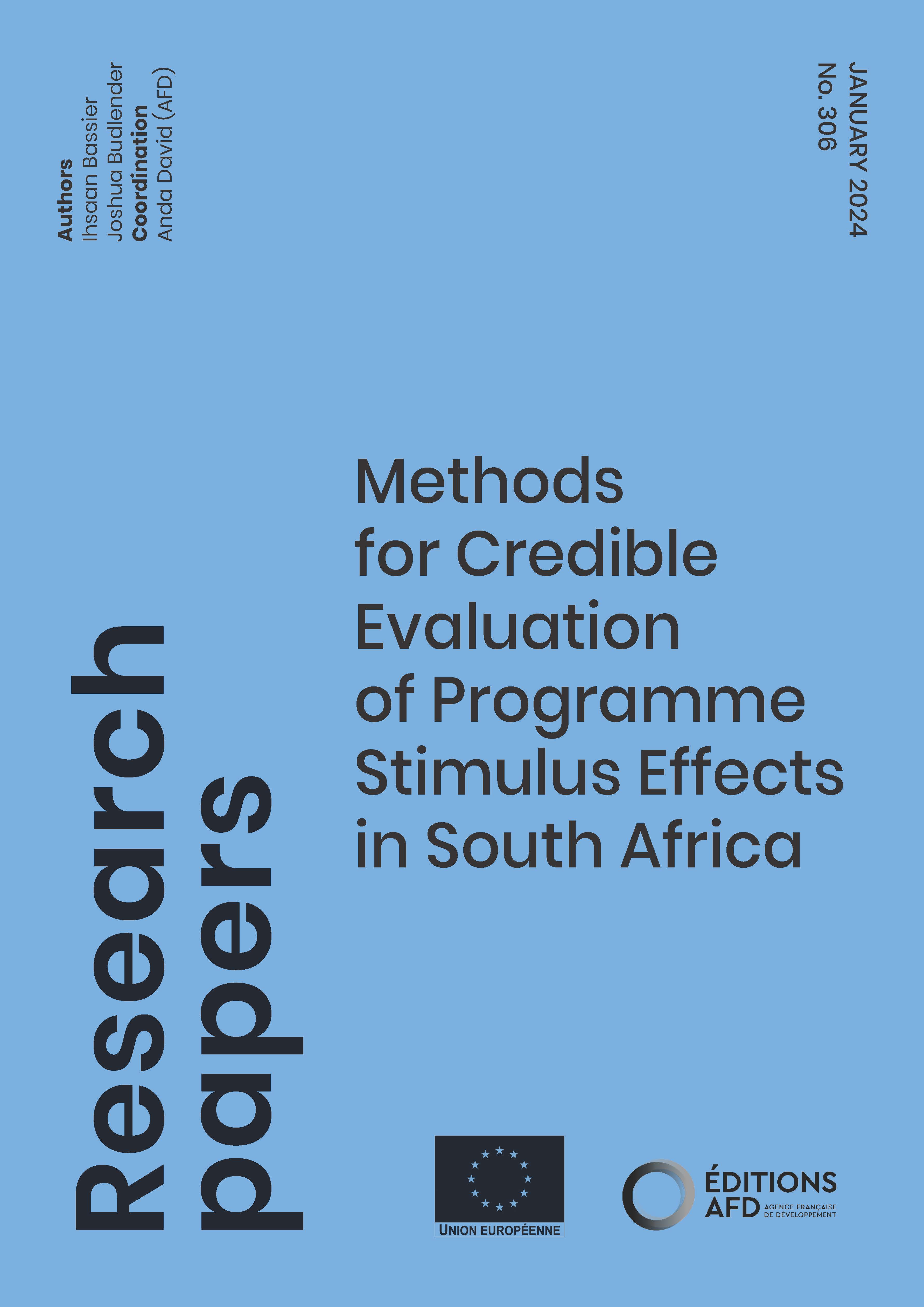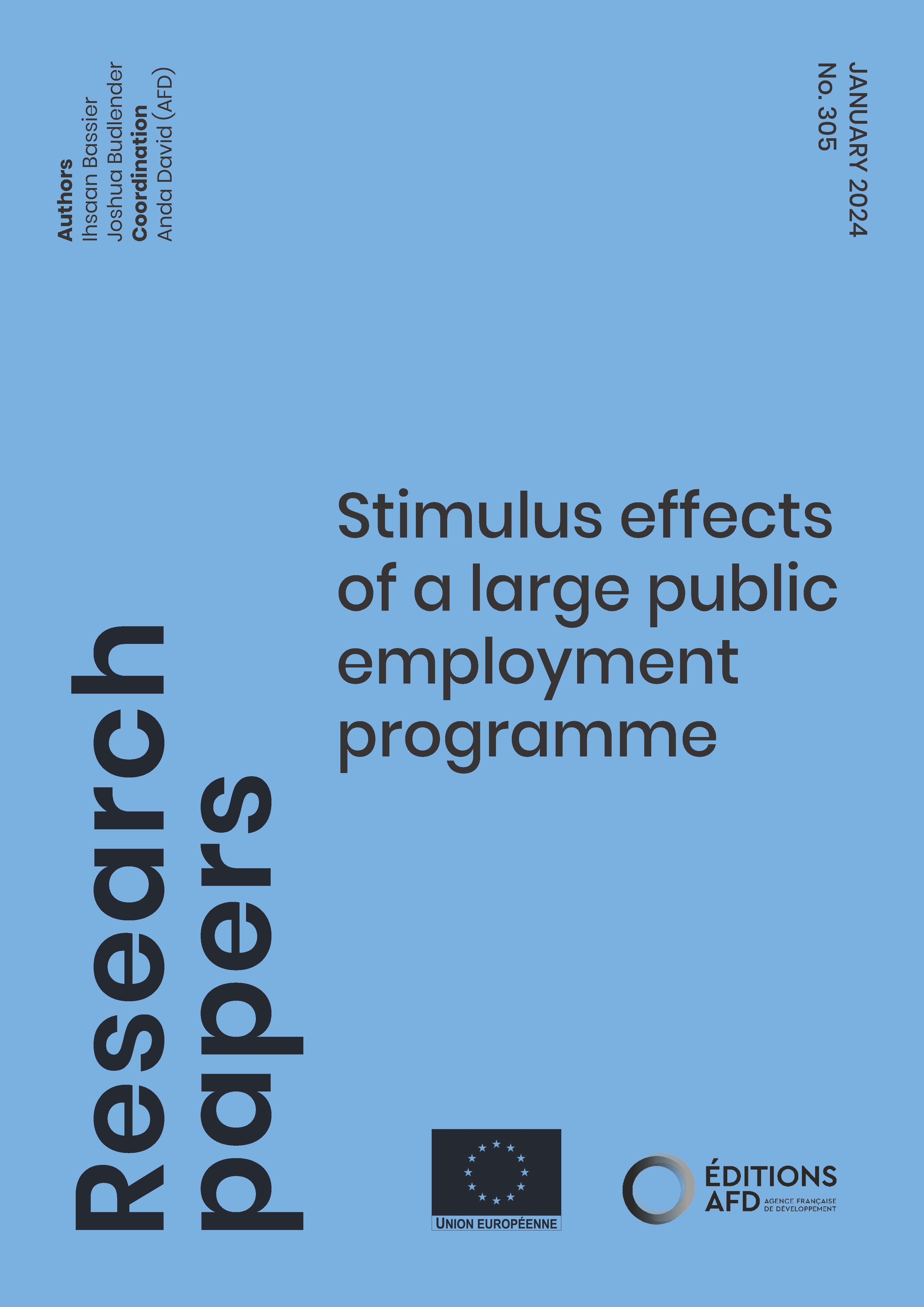 Legal notice EU (project) How to effectively reduce inequality in Indonesia? To answer this question, the Extension of the EU-AFD Research Facility on Inequalities is working with a local research center and a national statistical office to produce a diagnosis that is essential to guide policy interventions towards reducing inequalities.
Legal notice EU (project) How to effectively reduce inequality in Indonesia? To answer this question, the Extension of the EU-AFD Research Facility on Inequalities is working with a local research center and a national statistical office to produce a diagnosis that is essential to guide policy interventions towards reducing inequalities.
Context
In Indonesia, poverty has been declined since 2006 from 17.75% to 9.41% in 2019 due to strong economic growth and other poverty reduction efforts. The inequality, however, remains considerably high. Since 2010, Indonesia’s Gini ratio remains above 0.38. The poverty and inequality situation has been worsen post-pandemic. Indonesia’s headcount poverty rate back to double digit, 10.14% in 2021, while the Gini ratio climbed to 0.384, its highest rate since 2018. While focus on economic inequality is important, the picture of inequality in Indonesia should be assessed through a multi-dimensional aspect, not limited to households income or expenditure.
Indonesia is a fourth most-populous and also the largest archipelagic country in the world. It makes any policy context should be assessed carefully throughout population groups, income class, and geographical location due to the difference in the provision of public infrastructure and policy efforts within the country. As such, a comprehensive inequality diagnostic report is needed to assess overall condition of inequality in Indonesia not only using monetary indicator (income or expenditure), but also social assets, in terms of access to education, health, water and sanitation, employment, and other basic infrastructures needed for households.
The Extension of the Research Facility on Inequalities will cooperate with leading research center, LPEM FEB UI, and national statistical office, BPS, to conduct comprehensive inequality assessment and produce an inequality diagnostic report as the basis for launching a national dialogue about inequality and stimulate policy interventions to overcome inequality.
This project is part of the Extension of the EU-AFD Research Facility on Inequalities . Coordinated by AFD and financed by the European Commission, the Extension of the Facility will contribute to the development of public policies aimed at reducing inequalities in four countries: South Africa, Mexico, Colombia and Indonesia over the period 2021-2025.
Objectives
The objectives of the Inequality Diagnostic Research in Indonesia are:
- to produce a working paper which will consolidate data and resources (papers) around inequality issues to profile the prevailing situation of inequality in Indonesia.
- to conduct capacity building activities for national research center and the national statistical office in performing data analysis for the Inequality Diagnostic Research Report.
- to introduce specific tools for multidimensional inequalities diagnostic in Indonesia.
This research has led to a comprehensive Inequality Diagnostic Research Report in Indonesia and contributes to public debate and discussion on Inequality in Indonesia. Indeed, this project performed a thorough analysis of multi-dimensional aspect of inequality in Indonesia and a comprehensive breakdown based on income groups, geographical locations, and gender. It also includes analysis of prior policies that have been taken by the government to reduce inequality and how it performs overtime. The output of this research will help government to identify priorities and policy options in order to further reduce them.
Publications
You will find below the research publication related to this project:
Read the press release: LPEM FEB UI, AFD, and BPS Release the Inequality Diagnostic Report for Indonesia 2023
Contacts
- Oskar Lecuyer, AFD Research Officer
- Emmanuel Fourmann, AFD Research Officer
Other projects supported by the Extension in Indonesia
Harnessing the benefits of inequalities reduction in marine protected areas in Indonesia
Completed
2022 - 2023


 Legal notice EU (project) What have been the local stimulus effects of the South African Presidential Employment Stimulus Initiative (PES) and the national social grants program? The Extension of the EU-AFD Research Facility on Inequalities in partnership with SALDRU will seek to answer this question.
Legal notice EU (project) What have been the local stimulus effects of the South African Presidential Employment Stimulus Initiative (PES) and the national social grants program? The Extension of the EU-AFD Research Facility on Inequalities in partnership with SALDRU will seek to answer this question.
Context
The Covid-19 pandemic has forced societies around the world to make difficult trade-offs, as they try respond to the public health crisis on one hand, and to the economic and social distress arising out of it on the other. In South Africa, these combined crises have exacerbated already high levels of unemployment, deepening poverty and heightening levels of hunger and food insecurity.
To mitigate the combined health, social and economic crises stemming from the Covid pandemic, South African President Cyril Ramaphosa announced, in April 2020, a range of support measures to mitigate their impact, including emergency social protection and employment stimulus measures.
This project is part of the Extension of the EU-AFD Research Facility on Inequalities. Coordinated by AFD and financed by the European Commission, the Extension of the Facility will contribute to the development of public policies aimed at reducing inequalities in four countries: South Africa, Mexico, Colombia and Indonesia over the period 2021-2025.
Objectives
This research project aims to study the local stimulus effects of South Africa's PES and national social grants program. In order to do so, it brings together a wide range of existing and new data sources, such as shopper data provided by Shoprite Checkers and programme participant data from Harambee Youth Employment Accelerator, which are securely merged while preserving individual anonymity using local tech company Omnisient’s proprietary encryption technology.
The primary research focus will be on the multiplier effects of these two programs, that is, the effects of the programs on the economy beyond the direct impact of spending on program participants and their households.
These program-specific multiplier effects are crucial to the overall evaluation of the programs, particularly in the context of budget constraints, but are difficult to identify in a credible empirical manner given the lack of work on them in South Africa.
In studying them, this project thus has the dual objective of characterizing the spending patterns of stimulus beneficiaries and then examining how such spending is likely to stimulate economic activity in industries further up the product supply chain. Much of the analysis proposed is descriptive and extrapolative rather than causal when it comes to quantifying multiplier effects.
Thus, the overall goal of this research is to provide an incomplete but conservative and credible quantitative baseline for thinking about program-specific multipliers in South Africa, in an environment where such evidence is lacking.
Results
The publications and webinars related to this research project are available below.
You will find below the two research papers related to this project:
The project also organized two research conferences to present the results of the research. The replays are available below.
- SALDRU-AFD-EU Event: The stimulus effects of South Africa’s Basic Education Employment Initiative (February 7, 2024)
AFD, the EU Delegation in South Africa and SALDRU hosted a public event on the stimulus effects of the Presidential Youth Employment Initiative – Basic Education Employment Initiative (PYEI-BEEI) at the University of Cape Town.
The PYEI-BEEI programme, which targets 18-35 year-olds eligible as education assistants or general school assistants, is the largest component of South Africa’s Presidential Employment Stimulus (PES), announced in 2020 as one of the support measures against the impact of the COVID-19 pandemic.
The research was presented by Joshua Budlender (one of the project's researchers) and complemented by a presentation on the direct returns to learners in the classroom from the PES interns in the schools. Also under consideration is, as the PYEI-BEEI researchers conclude, whether other public spending (such as social grants) may have similar initial stimulus effects.
An interview with Josh Budlender is also available below:
- Research Conversations: Stimulus effects of public employment programmes (12 June 2024)
A webinar on the stimulus effects of public employment programmes with Anda David (AFD), Ihsaan Bassier (UCT-SALDRU) and Maikel Lieuw-Kie-Song (ILO) was also held.
Contact
- Anda David, AFD Research Officer
Download the research papers
 Colombia has demonstrated its commitment to climate issues through its commitment to implementing its nationally determined contribution (NDC) under the Paris Agreement. Developing an ecologically and economically sustainable development trajectory is a significant challenge, which the GEMMES Colombia project supports through sound methodology and policy-based dialogue.
Colombia has demonstrated its commitment to climate issues through its commitment to implementing its nationally determined contribution (NDC) under the Paris Agreement. Developing an ecologically and economically sustainable development trajectory is a significant challenge, which the GEMMES Colombia project supports through sound methodology and policy-based dialogue.
Context
Highly exposed to the effects of climate change and to the degradation of natural resources, Colombia is strengthening its climate policy, considering a green growth strategy, particularly since the 2014-2018 National Development Plan. Nevertheless, the country's dependence on raw material exports and its strong integration into international financial markets generate monetary, financial and commercial vulnerabilities.
AFD is supporting Colombia in its efforts to tackle climate change through the GEMMES Colombia project, which is part of the third climate policy loan since 2018. The GEMMES programme, by integrating the impact of climate change into its forecasts, is developing a general theoretical model on the one hand, and national models applied to concrete cases and adapted to the characteristics of each country on the other, including the GEMMES Colombia model.
About GEMMES: AFD and Macroeconomic Modelling Tools for the Ecological Transition
Goal
The GEMMES Colombia project, which is fully in line with AFD's commitment to strong sustainability, aims to :
- Highlight potential fragilities in the Colombian economy through a better understanding of the interactions between fiscal, monetary and trade policies and the country's NDC objectives;
- Identify the opportunities generated by the energy transition in Colombia: structural changes and financing methods under the best possible conditions;
- Quantifying the macroeconomic impact of NDC-related investments, particularly in the financial and tax sectors;
- Promoting public policy dialogue on Colombia's energy transition:
- Providing a decision-making tool for decision-makers on climate policies, with a view to limiting the consequences identified without compromising the implementation of Colombia's NDC objectives;
- By promoting the appropriation and sustainability of the GEMMES modelling tool within the partner institutions.
Read also: Diego Guevara: "We cannot develop sustainably if we lack the resources"
Method
In addition to its specific transdisciplinary approach, which makes this project one of the few to integrate the notion of strong sustainability, the originality of GEMMES lies in its consideration of macro-financial imbalances and the impact of the low-carbon transition on all elements of the balance of payments.
Moreover, GEMMES Colombia is part of a partnership initiative that is organised around two phases:
- The first phase is based on the development of the model and the macroeconomic analysis of the Colombian NDC trajectory, in partnership with the National Planning Department (DNP) and the Ministry of Finance (MHCP) supported by AFD's modelling teams.
- The second is intended to ensure the sustainability of the project after the end of the support, with the analysis by the National University of Bogota (UNAL) of the interactions between trade, fiscal and monetary policies and the NDC trajectory, as well as the training of students in sustainable development through the Catedra course as well as in the GEMMES methodological approach.
Results
The first results of the project have been presented at the virtual congress "Conexión DNP: transfiriendo conocimiento para innovar" on 2 and 3 December 2021. The project partners expressed their satisfaction, with the MHCP showing a particular interest in modelling after a year of remote work due to the Covid-19 pandemic.A university course on sustainable development (Catedra), partly based on the results of the GEMMES Colombia project, was launched on 7 March 2022 at UNAL to raise awareness of the issue.
In March 2022, a university course on sustainable development (Catedra), partly based on the results of the GEMMES Colombia project, was launched at UNAL. As a continuation of this initiative, a second course on the modelling of ecological transitions in the Global South was given in 2023.
The GEMMES Colombia model, enriched by academic expertise and integrated into decision-making processes through Colombian ministries, has become a key tool for public policy dialogue. These exchanges continue thanks to the GEMMES Strategic Committee, composed of the Ministry of Finance and Public Credit (MHCP), the National Planning Department (DNP), the Ministry of Mines and Energy (MME) and the Banco de la República.
At the request of the Colombian authorities, GEMMES was added to the MHCP macroeconomic models in 2023 and was coupled to the Energyscope energy model, an energy assessment and planning tool. Ownership of the model continued in 2024 with executive training on the use of the model provided to MHCP officials.
The research resulted in a collective book published in June 2024, presenting the scientific findings and policy recommendations from the GEMMES Colombia project: Modelling low-carbon transitions in Colombia: Macrofinancial opportunities and risks project. This work also led to the launch of a new project: the creation of a serious game to support multi-stakeholder dialogue around the NDC in Colombia.
Watch the replay of the GEMMES Colombia book launch (in Spanish)
Lessons learned
The GEMMES Colombia model, by developing scenarios on fossil fuel exports and alternative policies for the 2023-2050 period, as well as financing scenarios of the NDC trajectory, contributes to informing decision-makers in their political strategy to fight global warming. The model also allowed the National Planning Department (DNP) to analyze the consequences of economic shocks such as the loss of the country’s investment quality, the reduction of coal exports or the bankruptcy of Evergrande in China.
The conclusion is clear: a diversification of the production structure and a transformation of public finances are essential if Colombia is to meet the challenges of a global low-carbon transition and ensure its own energy transition. The GEMMES model highlights the importance of using a combination of private investment and public green bonds to finance Colombia's climate ambition.
Download the publications related to GEMMES Colombia:
- Can Colombia cope with a global low-carbon transition? (June 2023)
- Low-carbon transition and global macroeconomic vulnerabilites: A multidimensional approach in tracing vulnerabilities and its application in the case of Colombia (July 2023)
- Modelling low-carbon transitions in Colombia: Macrofinancial opportunities and risks (July 2024)
Contact:
- Antoine Godin, economist at AFD, head of the Macroeconomic Modelling Unit
Contacto:
- Antoine Godin, economista, responsable de la célula de modelización macroeconómica GEMMES, AFD
 Côte d'Ivoire, whose current electricity production is largely based on natural gas, has affirmed its commitment in favor of the energy transition. The GEMMES Côte d'Ivoire project studies the interactions between the productive, financial and ecological spheres through macroeconomic modelling, thus constituting a real tool for Ivorian policy makers.
Côte d'Ivoire, whose current electricity production is largely based on natural gas, has affirmed its commitment in favor of the energy transition. The GEMMES Côte d'Ivoire project studies the interactions between the productive, financial and ecological spheres through macroeconomic modelling, thus constituting a real tool for Ivorian policy makers.
Context
Elaborating development policies in line with the principles of strong sustainability is a complex issue because of the tensions that may exist between different Sustainable Development Goals. The desire to integrate 42% of renewable energies in Côte d'Ivoire's energy mix by 2030 therefore requires a reflection on the possible sustainable development trajectories, a subject at the heart of the GEMMES Côte d'Ivoire project.
This project is part of AFD's modelling work, that integrates climate dynamics, both adaptation and mitigation, into macroeconomic forecasts to inform public policy choices in this area. AFD is developing a general theoretical model on the one hand, and national models applied to specific cases and adapted to the characteristics of each country (including the GEMMES Côte d'Ivoire model) on the other hand.
Find out more about GEMMES: AFD and Macroeconomic Modelling Tools for the Ecological Transition
This collaboration between AFD, the Ministry of Planning and Development of Côte d'Ivoire and Mines ParisTech is one of the components of the memorandum of strategic dialogue, which aims to develop research activities, their dissemination, as well as their synergies with public policies.
Goal
GEMMES Côte d'Ivoire's first goal is to better understand the interactions between the economy and socio-economical aspects. It focuses on the macroeconomic impacts of the energy transition and their ability to create favorable conditions for poverty reduction.
One of its specificities is that it aims to foster dialogue on the ecological transition between researchers and policy makers, both at national and international levels. GEMMES Côte d'Ivoire aspires to propose a tool to facilitate political decision-making, proposing transition trajectories in favor of climate. It could then provide elements contributing to the definition of an energy transition strategy for 2050 in line with Côte d'Ivoire’s poverty reduction and climate goals.
More broadly, GEMMES Côte d'Ivoire is helping to consolidate AFD’s position as a main stakeholder on low-carbon transition and strong sustainability.
Method
GEMMES Côte d'Ivoire develops a multidimensional and transdisciplinary approach focused on the effects of the energy transition. The project is based on modelling exercises:
- Techno-economical modelling of the energy system, developed by Mines Paris Tech
- Macroeconomic modelling, developed by AFD and the Ivorian think tank CAPEC
The methodological framework of GEMMES has been adapted to meet the characteristics of the Ivorian economy. A particular focus was placed on the stability of the trade balance and public debt. Moreover, the coupling between the energy model and the macroeconomic model allows to perceive the interactions between the dynamics of energy transition and macro-financial stability. In addition, coupling can highlight the benefits of an ambitious energy transition in terms of external sustainability and job creation.
Results
Three scenarios quantifying the long-term macroeconomic effects of the energy transition have been established. As a result, the development of renewable energy could reduce the average production cost by 20% under certain scenarios, notably through increased investment in the solar battery sector.
The development of this sector would also generate positive socio-economic impacts, concerning growth, employment and the trade balance, while increasing bioelectricity generation capacity improves the income of 4 million people in rural areas. This environment is then more favourable to the deployment of specific policies to fight poverty.
Lessons learned
The project has conducted the first GEMMES modelization exercise incorporated in the ongoing public policy dialogue between AFD and Ivorian public stakeholders. The project has provided the Ivorian government with models highlighting the opportunities and contradictions within the country's trajectory, between the possible energy choices, the environmental agreements to be considered and the financial implications of each scenario.
Contact :
- Antoine Godin, economist at AFD, head of the GEMMES Macroeconomic Modelling Unit


